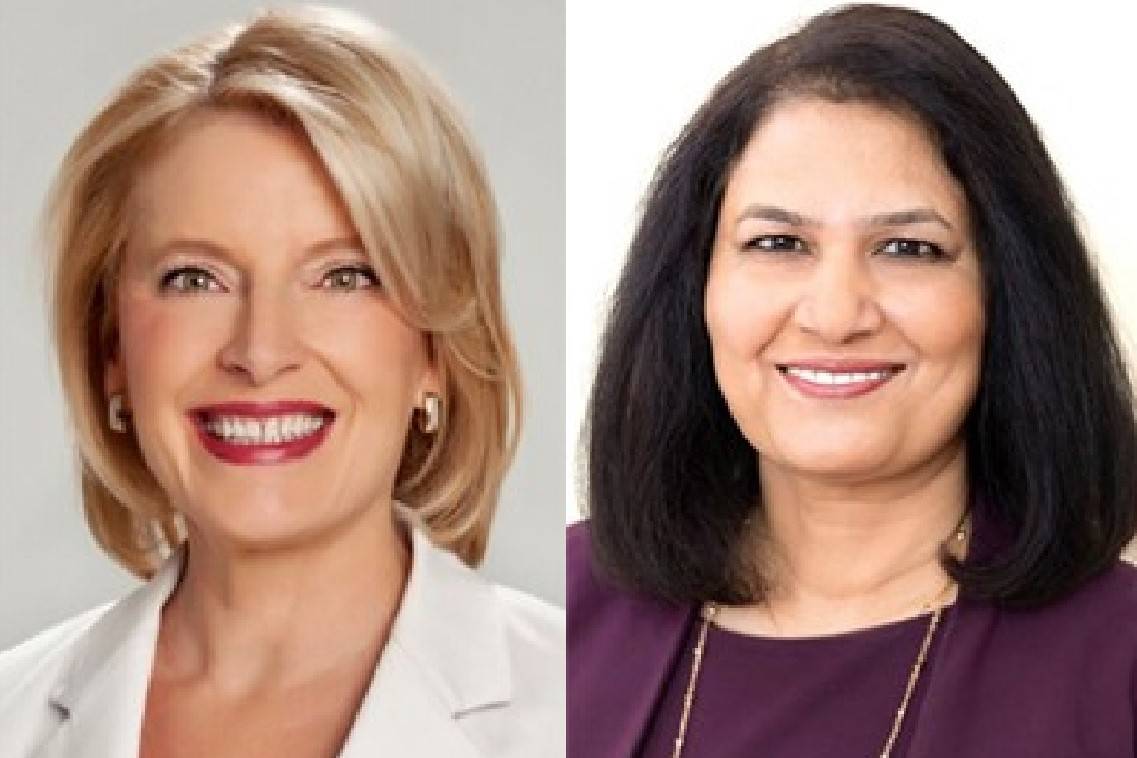2 political newcomers run to replace Hambrick in Assembly District 2
Two political newcomers are facing off for an open Assembly seat in Summerlin that has been held by Republican John Hambrick for a dozen years.
Republican Heidi Kasama and Democrat Radhika Kunnel each emerged from crowded primary fields to move onto the general election this year for the open and highly competitive seat. Republicans hold a slight voter registration advantage in the district as of August, with 37 percent of voters registered as Republicans and 35 percent as Democrats.
Hambrick, who served as speaker of the Assembly in 2015, is termed-out and unable to run again.
It’s a key seat for Republicans to keep if they want to have a chance of breaking the Democrats’ supermajority in the lower chamber of the Legislature. A supermajority allows one party to pass legislation that would require a two-thirds vote, such as a tax increase or new tax, without needing any yes votes from the other party. In 2019, Democrats controlled 29 seats while Republicans held 13.
Kasama believes her experience as a certified public accountant, which included time auditing state institutions in Washington state, gives her and edge up when it comes to analyzing Nevada’s budget.
“I’ve read big budgets, I understand how budgets work. That comes very naturally to me,” said Kasama, who now works as a Realtor in Las Vegas and has served as president of both Nevada Realtors and Las Vegas Realtors.
When it comes to the state’s fiscal crunch caused by the COVID-19 pandemic, she said she was disappointed to see lawmakers make drastic cuts to education as part of the state’s moves to close a $1.2 billion budget hole.
Kasama said that to balance the budget moving forward, Nevada should pursue more revenue sources by way of attracting more businesses to the state, such as more tech companies, rather than pursuing any new or increased taxes. She said she would support offering those companies some tax breaks or other incentives to entice them but doesn’t think it has to be as high as the $1.3 billion tax break package the state used to attract Tesla in 2014.
“It’s competition. You can’t give away too much because it’s a net zero increase in revenue for the state. You have to look at it as a balance,” Kasama said.
‘Aggressive’ mining taxes
Lawmakers also passed a trio of proposals during the special session this summer that could change how mining companies are taxed, moves billed by Democrats as helping the state diversify its revenue sources to become less dependent on the volatile gaming and tourism markets.
Kasama said that she thinks that the plans are “too aggressive” and could hurt smaller mines the most, but she said believes that the industry is open to some adjustments.
“Mining really hasn’t slowed down, and hospitality has. Attacking our healthy industry doesn’t make sense,” Kasama said.
Kunnel, a former cancer biology professor who recently earned her law degree from UNLV’s Boyd School of Law, said that she doesn’t think the state’s education and health care budgets can afford to be cut any more. But because those two budgets are the two biggest chunks of the state’s budgetary pie, she said she thinks that if the state is forced to make more cuts, those things would be affected.
But avoiding cuts and finding ways to increase revenues should be at the top of the priority list in 2021, Kunnel said. But like Kasama, Kunnel doesn’t see the answer in levying new or increased taxes on Nevadans.
“It’s not about taxes. I strongly believe we should work on diversifying our economy so our revenues streams are stronger,” Kunnel said.
Bringing new business
On the proposed mining taxes, Kunnel said she still has a lot of questions about how those would work and wants to know more about why mining corporations have a specific carve-out for tax rates in the state constitution.
She said that Nevada has a lot of potential when it comes to attracting companies from the hotel and health care and bio-tech industries. She also thinks Nevada could look at increasing tourism beyond casinos, specifically trying to lure more people to visit Nevada’s outdoor attractions.
When it comes to criminal justice reforms, Kunnel said that the state cannot be stagnant on policies and that officials need to work to have a more accountable judicial and police system, but she didn’t offer specific proposals for what that would look like.
Kunnel said that she would want to look into tweaking the state’s water rights laws, which in some cases were written more than 100 years ago, to bring them more in line with the current environmental situations.
Contact Capital Bureau Chief Colton Lochhead at clochhead@reviewjournal.com. Follow @ColtonLochhead on Twitter.























